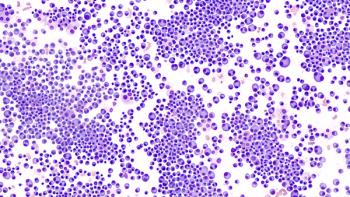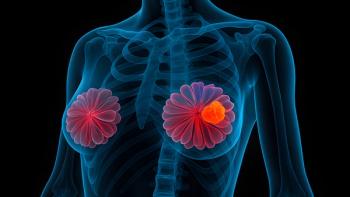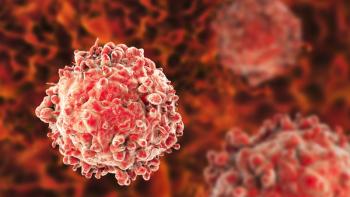
Clinical Trials Continue to Propel Field of Oncology with Nurses on The Frontline
Anne Delengowski, RN, MSN, AOCN, CCCTM, discusses the evolving role of the oncology nurse in clinical trial research.
As the cancer treatment landscape continues to evolve, the role of front-line nurses in clinical trials remains essential, according to Anne Delengowski, RN, MSN, AOCN, CCCTM.1
“I don’t know if nurses today can truly appreciate where we’ve come because they were never there, [but] I have had the honor and privilege of being there,” Delengowski, who has been an oncology nurse for 42 years, and is the director of Oncology Nursing Education at Thomas Jefferson University Hospital, said in an interview. “In the past, we had very few cancer drugs, we had minimal second-line therapies which are standard now, we didn’t have targeted therapy or immunotherapy, and we had poor symptom management.”
Delengowski recently presented at the 2022 Oncology Nursing Society Bridge, highlighting notable improvements spanning the course of her career and the excitement that comes with being a part of a clinical trial from start to finish. In a post-presentation interview with Oncology Nursing News®, Delengowski offered a personal perspective into how the field has changed during her career as a frontline nurse.
“When I first started as a cancer nurse, we didn’t have the antiemetics we have today, and it was awful. I did a study back then with a colleague from the school of nursing looking at anticipatory nausea and vomiting because the patients would come in vomiting prior to getting their drugs because they were anticipating it happening, [but] very rarely do you see that anymore. We [also] didn’t have growth factors; we didn’t have the colony stimulators to be able to prevent neutropenic fevers, so patients were hospitalized for most of the course of their disease. Today, all the stuff we talked about here came through clinical trials.”
She also highlighted how pain management strategies have significantly improved.
“I worked a lot in nightshift when I was in graduate school, and we didn’t have sustained release narcotics,” she said. “We used to have to wake people up in the middle of the night to give them pain medicine because if we didn’t their pain would be out of control in the morning. Once again, it was revolutionized that we have PCA [patient-controlled analgesia] pumps now, we have sustained release therapy. The nightmare of seeing patients in pain, you kind of weighed the fact if I didn’t wake them up, they’d be in a lot of pain in the morning and if I did wake them up, I interrupted their sleep, and it wasn’t good.”
Throughout her career, she shared that she has been inspired by the advances that clinical trials have brought about. She noted that patients are living longer, healthier lives, and that clinical trials are allowing providers to achieve “magical things.”
She noted, as an example, the breakthrough findings from Memorial Sloan Kettering Cancer Center where 100% of patients with rectal mismatch repair-deficient locally advanced rectal cancer achieved a complete response with dostarlimab-gxly (Jemperli).2
Delengowski shared that, prior to working in clinical trials, she did not understand much about the process or have proper understanding or the extent of the behind-the-scenes work. For example, in her presentation, she explained how clinical trials must receive approval form a multidisciplinary disease group and a facilitation committee, along with a protocol review committee. In addition, there is a site initiation visit which provides the principal investigator and the team with training on all aspects of the trial, prior to its initiation.
Teamwork is also critical and research coordinators who understand the trial have been involved from the inception to guide nurses.
As part of her presentation, Delengowski outlined the different phases of clinical trials. Phase 1 trials are specifically designed to find a safe dose of a novel regimen for humans. This step determines how much a new treatment should be given (ie, oral or intravenous administration), and what the maximum-tolerated dose is.
Delengowski stressed, “A lot of times in phase 1 [trials] we don’t know what the symptoms or outcomes might be, so we need to be cognizant of the fact that anything that happens to that patient we need to document. We need to make sure we do it and we need to follow the protocol to dot the i, cross the t and do it all perfectly because if everyone chooses to do something different than it really doesn't make the trial valuable.”
“I remember giving my very first phase 1 [treatment] and I took a step back thinking ‘You want me to give this to a human being now? It’s the first time a human being has received this drug,’” she said. “I was humbled and wowed at the same time. It was wonderful for all involved, but a little frightening it was for us [as nurses] to administer.”
Phase 2 trials are larger and are designed to determine if the new treatment is effective against a certain cancer, as well as its safety profile. Phase 3 trials compare the new treatment (or new use of a treatment) against the current standard of care.
Across the trial continuum, supporting patients during the trial remains a significant part of the nurse’s role as patients can be overwhelmed throughout treatment. Delengowski highlighted that knowing where to get information for patients and helping to educate them is important for front-line nurses.
“It becomes very exciting when you know you’re part of [clinical trials],” she said. “Some frontline nurses may not exactly understand the value they bring, but [they’re] invaluable; We’re the frontline, we’re the last line, we’re the point where the person gets the medication or the therapy.”
However, phase 3 trials, which are usually randomized, can be difficult for nurses, because patients may not be happy to learn they were randomly assigned to receive the standard of care.
Delengowski explained “It's very hard when you talk up a study and the patient was randomized to standard of care. Often a frontline nurse will be confronted with [patients who say] ‘I signed on thinking I was going to get the new therapy and now I got standard of care drug.’ ”
“What I tell [patients] is in phase 3 studies we don’t know that standard care might be the best therapy. We don’t know and that’s what this is all about. I’ve been involved in phase 3 [trials], where the [experimental drug] was not better than standard of care; it was good, but not as good. It’s just part of the process and once you give that information to the patient, they feel a bit better about it.”
When looking back on all the various phases of clinical trials she has been a part of, Delengowski said it was an exciting feeling to think, “Wow, I was part of that, and we were there when it happened. Some of the trials didn’t come to fruition, but a lot of them did and when you look at that and know that you were part of it, it is so exciting…. As cancer nurses we see the patient go through from diagnosis to hopefully a long life, but in between there’s roadblocks. If they fail first-line therapy and other therapies and go onto a clinical trial, we walk that walk with them. I think that understanding that there is that next step [is important].”
Future steps in improving the clinical trial process include ensuring that inclusivity is a priority and that trials will be brought to the community. Historically, clinical trials have been performed in large academic centers which can be difficult to get to and exploring ways to bring them to patients and working with a community-based staff can be beneficial in making the clinical trials more comfortable for patients.
“[Clinical trials] give that glimmer of hope to someone that there may be other outcomes out there,” Delengowski said. “Even if it’s not something that’s going to be beneficial for that individual, which is not always the case, but it leads to phase 2 and phase 3 [trials] where there seemingly is some hope for a disease process that might not have had a whole lot of other options.”
References
- Delengowski A. Clinical trials on the frontline: the changing landscape of clinical trials nursing. Presented at: ONS Bridge; September 13-15, 2022; virtual.
- Cercek A, Lumish MA, Sinopoli JC, et al. Single agent PD-1 blockade as curative-intent treatment in mismatch repair deficient locally advanced rectal cancer. J Clin Oncol. 2022;40(suppl 17):LBA5. doi:10.1200/JCO.2022.40.17_suppl.LBA5
Newsletter
Knowledge is power. Don’t miss the most recent breakthroughs in cancer care.















































































